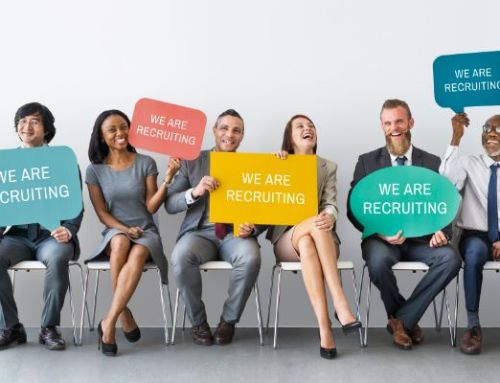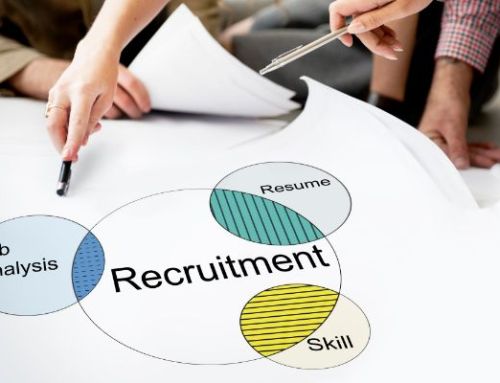Having to hire someone responsible for the HR department can be a very difficult task to handle, especially if you’re running a company that is now only just beginning. There absolutely needs to be some capable people who can take care of everything your employees need, to be responsible for making plans, and to keep everything under control. Sounds difficult, right? It shouldn’t be so if you know how to choose your people.
Also read: Mentoring and Hiring the Right People
Hiring a human resources responsible means starting on the right foot from the beginning; the interview. When you don’t have enough experience, this can truly become frightening, but in fact, it is not something to be afraid of. In this article, we will be discussing some of the best interview questions that you need to ask your HR job applicants to make sure that they’re the right people for this job. Asking the right questions matters, but you should also feel the intentions of that person and trust them. However, this cannot be taught, so you’ll have to see it for yourself.
1. What do you like most about the world of human resources?
In the answer to this interview question, you should be looking for passion. The main idea here is to hire someone who simply loves this profession and are not only doing it for the money. No employer wants a person who doesn’t care about the wellbeing of the company and its people. If you’re careful, you can spot this failing attitude right from the get-go, so don’t be fooled! The best people in this domain are always looking for new ways to help the company and will do everything to make it work.
2. What do you like least about the world of human resources?
The reverse is also extremely important whenever you are interviewing an HR job applicant. However, before asking this question is crucial to be aware of the fact that everyone has things that they hate about their profession. Don’t expect people to tell you that everything is perfect because they will lie to you and you don’t want that. Also, don’t cross them off your list just because they say they don’t like a certain thing. This won’t make them a bad employee!
Still, having someone mention only the bad things about their profession won’t help them either. However, if the people you’re interviewing mention what they don’t like but are careful enough to not make it seem like the worst thing in the world, they will get a chance. At this point, it’s all about packing things so that they don’t seem as bad, neither for them or you, the employer.
3. Have you ever made a mistake? How did you solve it?
This question might seem generical but in reality, it tells a lot about how a person handles various situations and most importantly, how able they are to admit that they made a mistake. If you’re interviewing someone and they tell you all about a mistake they made and how they solved it, they might be a very valuable asset to your company.
Also read: Let’s Talk About Failure And How Mentoring Can Help
On the other hand, if someone claims to have never made a mistake in their career, it’s crystal clear that they’re not only lying, but are afraid to admit their wrongdoings. Cross these people off your list as they are not suited for an HR job. In case the person in front of you offers detailed examples of how they handle various situations, listen very closely. They may be offering some valuable clues without even realizing it. It’s also important to stay updated when it comes to the trends in this domain and ask your employees to do the same thing. Here are some surprising skills that might shape the human resources domain in the near future.
4. What are your weaknesses and strengths?
This is a question that might offer you similar answers to the previous one. Again, it’s all about finding out how capable of admitting their weaknesses your possible future employer is. The biggest mistake would be for them to answer that they have no weaknesses. On the contrary, being aware of your weaknesses becomes a strength sometimes.
The way this person talks about their weaknesses and/or strengths speaks volumes about how they’ll talk about the company’s weaknesses and/or strengths. Stay away from someone who brags about themselves or who makes an endless list of strengths, even if they are unrealistic.
5. What do you think about job eliminations?
One of the most unpleasant things about working in the HR field is that you often have to make some tough calls. When people get fired or are the victims of layoffs, this person has to tell them why. So, when interviewing for such a job, ask the possible future employee about their perspective. This is important, and you will know if they have this in them, or if they won’t feel right making such difficult, but essential calls.
6. What’s the ideal workplace for you?
By asking this question you will immediately understand what the future employee wants from a job in order to be productive and feel all right. You might feel that your company doesn’t suit the person you’re interviewing. Apart from this, this question might prompt the person to talk about how they would help reshape the company and what changes they could make if offered the opportunity.
Also read: 7 Differences Between Hiring Remote and In-house Workers
Conclusion
These are only 6 of the most important questions to ask HR job applicants. You can find more questions on this website. Don’t forget that it’s important to do thorough research on how to find the best person for a position as important as HR.
All in all, it seems that interviewing someone for a human resources job is no easy task, but with a bit of patience, things can turn out great. Just pay close attention to what your candidates are saying and also, what they’re not saying. Facial expressions can offer important clues. Apart from this, getting the information you need is mandatory in deciding whether or not the person in front of you is the best choice for an HR position.
Image licensed from Depositphotos.com






I am surprised that you don’t mention questions surrounding problem solving – as being a good HR professional hinges on your ability to bring good problem solving skills to your organization. What separates a seasoned HR professional from the novice, is our ability to see problems and provide solutions…and even more importantly, our being able to anticipate problems and being prepared with solutions, before the organization even realizes that there is a problem.
So, I would agree that some of these are good questions to ask HR candidates, but most of these questions seem to be focused on someone early in their HR career. I wouldn’t expect such simple questions for HR leadership roles.